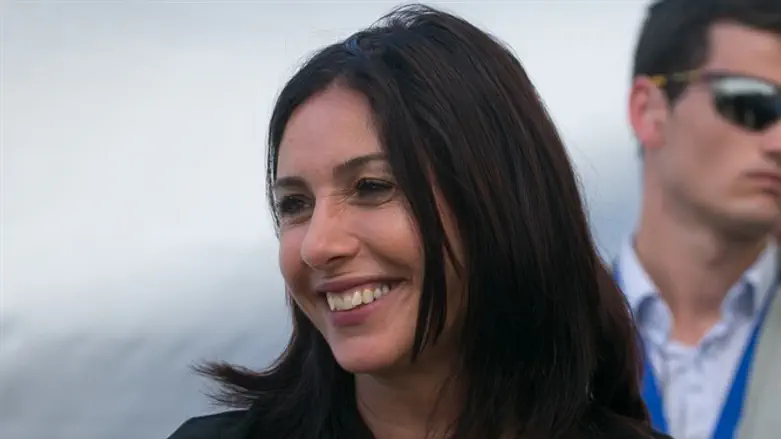
Israel’s national judo team put on a tutorial in sportsmanship last week in Abu Dhabi.
Despite being snubbed by opponents and officials alike, the athletes won five medals and treated the tournament and their opponents with respect. Moshe Ponte, the president of the Israel Judo Association, said the team was guided by the Japanese meaning of the word “judo” itself: the “gentle way,” or using the strength of one’s opponents against them.
On the other hand, Israel’s Culture and Sport Minister Miri Regev was less “gentle” in her comments.
“The medals are a finger in Abu Dhabi’s eye,” said Thursday, picking a decidedly un-judo-like metaphor after the first day of the three-day Abu Dhabi Grand Slam. Israel won, she said, even though their opponents tried to hide the Israelis “in the dark.”
On Sunday night, Regev held a reception for the returning team. Summarizing the Israeli performance in Abu Dhabi, Regev posted a video on her Facebook page in which she appeared with the team members singing the anthem.
"We achieved a knockout against boycotters," she wrote, using the Judo term “ippon,” meaning a perfect win, to describe Israel’s impressive performance in the face of the adversity extending beyond the confines of the sport itself.
Regev was referring to Abu Dhabi’s ban of Israeli symbols at the tournament. The Israeli flag did not appear during medal ceremonies, and the national anthem was not played for Israel’s gold medalist. Israel and the United Arab Emirates do not have relations.
The news of Israelis racking up medals at the tournament — and videos either of their opponents scurrying away during the handshakes or of one Israeli winner plaintively singing the words of Israeli national anthem despite the ban — set off torrents of Israeli pride and indignation.
And in Israel, it set off a debate: Should its athletes stay away from tournaments in regions where they are sure to be snubbed, or take part and try to shame (or even charm) their hosts into recognizing them?
Throughout the UAW tournament, the Israeli athletes quietly found ways to highlight their national identity. Tal Flicker, who won gold Thursday in the men’s under-66 kilogram category, sang the Israeli anthem “Hatikva” while the International Judo Federation’s anthem played in the hall. The federation’s flag, not Israel’s, hung above him.
After winning the bronze medal in the over 100-kilogram category, Israel’s Or Sasson, who also won bronze at the Rio Olympics, pointed to the bare patch on his uniform where the competitors from other countries had their national flag.